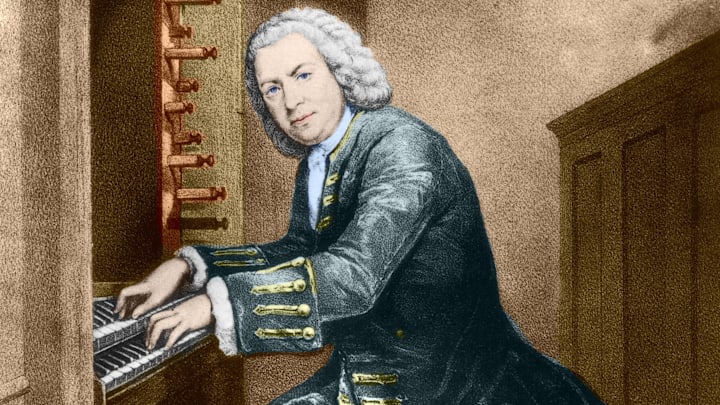Why didn't Bach write more pieces like the Toccata and Fugue in D minor? It's led to speuculation that he did not write it. Johann Sebastian Bach was a prolific composer who worked during the Baroque period (17th-18th centuries), and, though he was an innovator, he also (to some degree) "went with the flow" of those times. While he is well-known for his organ compositions, including the famous Toccata and Fugue in D minor, Bach's output is incredibly diverse and encompasses a wide range of musical forms and genres. The Toccata and Fugue in D minor, BWV 565, is one of Bach's most famous and iconic works for the organ....at least according to those who believe he wrote it.
What about those who believe he did write it? For them, the fact Bach didn't write more pieces like the Toccata and Fugue in D minor may be attributed to several factors. They might argue from the vantage point of artistic diversity. Bach was known for his versatility and innovation. He explored and mastered various musical forms, including fugues, chorales, concertos, suites, and more. Limiting himself to composing only pieces similar to the Toccata and Fugue in D minor would have hindered his artistic expression and creativity.
Then there's the liturgical context argument. Much of Bach's organ music, including (hypothetically) the Toccata and Fugue in D minor, was composed for specific liturgical purposes. The diverse needs of the church services he served influenced the variety of his compositions, and that's just the way things were. Different occasions and liturgical requirements called for different forms and styles. Capiche?
Is it slanderous to doubt that Bach wrote "Toccata and Fugue in D minor"?
I am not sure how heated things get on this topic, but some insist Bach could not have written this piece of music. One forum has comments like "Bach's generation would have called it 'Praeludium et fuga,' not Toccata and Fugue," and suggests it has "a progression of notes Bach never would have allowed." The post also quotes musicologist, musician, and composer Bruce Fox-LeFriche as saying "No other Bach fugue contains such feeble part-writing," with a "complete absence of contrasting rhythm, contrary motion or a least a few notes that don't slavishly follow the subject."
It sounds a little bit too high-brow of a critique, though doesn't it? The simple point is that, in modern parlance, the Toccata and Fugue in D minor "slaps." To a non-expert, it seems that a skilled composer could create pieces that slap a bit differently than their other works, and that may even sound vastly different in some ways. Right? Isn't that what evolution of style is about?
Evolution of style
I have no definitive answers on this question, though I have learned that, as one might expect, musical styles and tastes evolved during the Baroque period. Composers were influenced by changing tastes, patrons, and musical trends. Bach's compositions surely reflected these changes, and he adapted his style to suit the demands of his time. That is why we hear calming pieces like "Jesu, Joy of Man's Desiring" vs. the relatively spooky " Toccata and Fugue in D minor."
It's also a matter of individuality and uniqueness, both of the composers, the individual compositions, and the times they live in. Composers often seek to create unique and distinctive works; they might wish to diversify their portfolio of styles and moods, much like an actor wants a diversity of roles and genres to make the craft more interesting. Johannes Brahms defined craftsmanship as very important, saying, “Without craftsmanship, inspiration is a mere reed shaken in the wind.”
Bach the thief?!
While Bach wrote multiple organ works, each piece has its own character, showcasing his creativity and ability to explore new musical ideas. Still, not all compositions attributed to Bach are universally accepted as authentic. In fact, like so many musicians and composers, people will sometimes claim J.S. Bach "stole" music (when, in reality, someone might legitimately ask permission to use a part, or pay homage). Some works have been subject to scholarly debate regarding their authorship, just as bands will have disputes over songwriting credits, comedians will get outed as joke thieves, and authors will lose clout for using “ghostwriters.”
At the end of the day, Bach's compositional output was extensive and diverse, and he didn't limit himself to a single style or form. "The Toccata and Fugue in D minor" remains a remarkable work, but Bach's genius is evident across a broad spectrum of musical expression. The question of whether he wrote it seems to boil down to those who forever say "Yes, he did," and those who say, "No, he didn't." In any case, this piece of music belongs on a list of classical greats.
